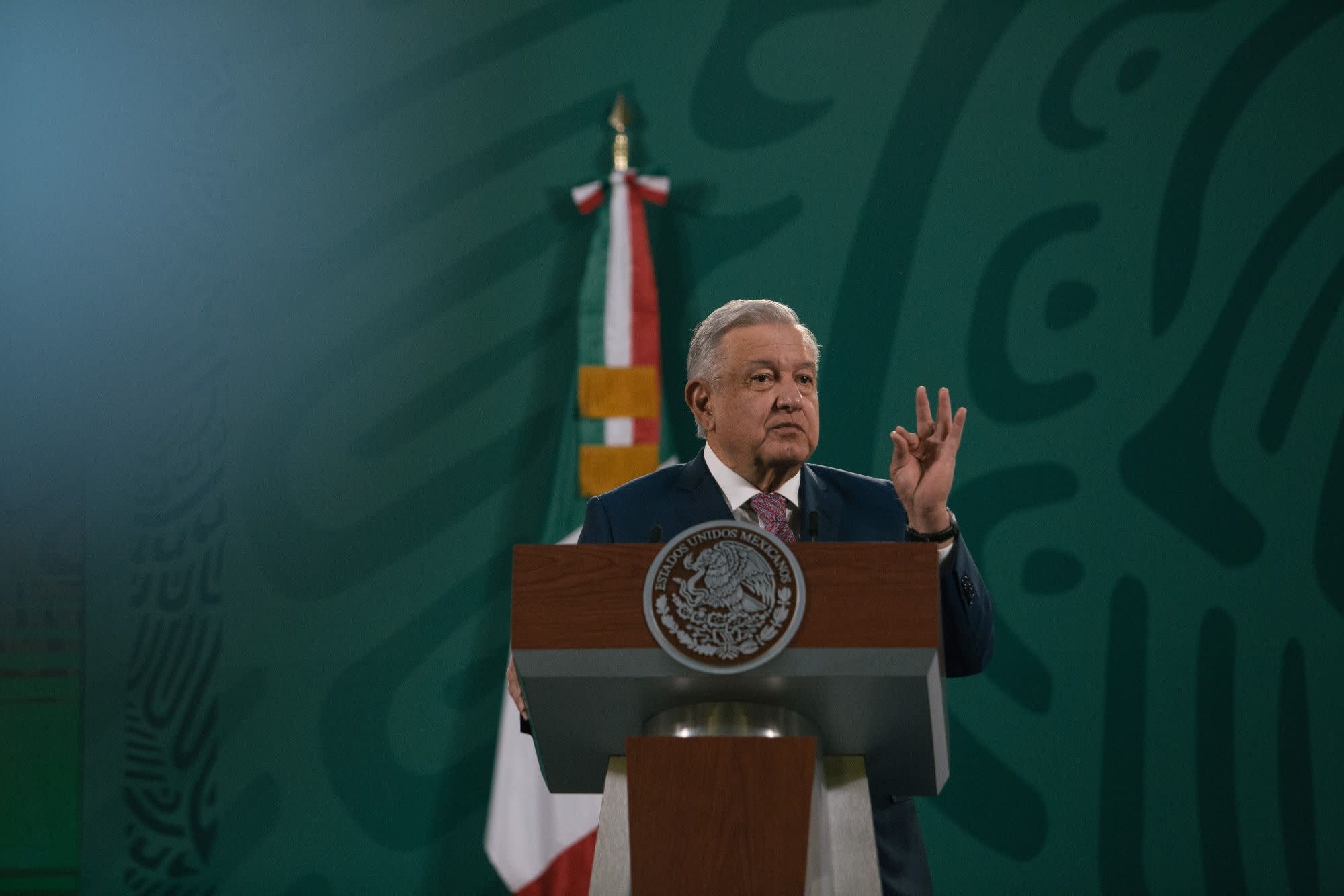Goldman Traders Caught in Mexico Stalemate Chasing $400 Million From Texas Freeze

(Bloomberg) — It’s a Wall Street nightmare. You score hundreds of millions of dollars on a trade and you just can’t get paid.
That’s what Goldman Sachs Group Inc. faces in a transaction pitting its traders against Mexico’s dominant power company, championed by none other than President Andres Manuel Lopez Obrador, according to people with knowledge of the matter. At issue: roughly $400 million the Wall Street bank believes it’s owed from a natural-gas trade that went wild when a deep freeze hit Texas in February.
In private discussions with Goldman Sachs, state-owned utility Comision Federal de Electricidad has blamed rogue traders, ejected staff and even hinted that the side lacking financial sophistication in the trade was, perhaps, the Wall Street bank, the people said.
If the impasse continues to escalate, it risks dragging the bank into a political blowup.
The freakishly cold storm that battered the central U.S. set off sweeping blackouts as ice formed on wind turbines and some pipelines froze, forcing oil and gas wells to shut. As power suppliers and traders struggled to track down fuel to meet obligations, prices skyrocketed. The surge benefited companies that happened to be on the right side of trades, but their ability to collect depends on what happens to gas suppliers, power generators and utility customers, some of whom have filed price-gouging lawsuits.
The cost of paying Goldman Sachs could ultimately come from Mexican households, many of whom were left without power in the winter — not so much because of local malfunctions but because authorities in Texas cut off fuel exports when their own lightly regulated system failed. It’s little surprise then that officials south of the border are reluctant to write a check to a giant U.S. bank.
Yet anybody who bails on such a bet risks becoming persona non grata on Wall Street, complicating their future access. On the other side, Goldman’s leaders have to consider how angry they want to make the government of Mexico, a market where the firm has been expanding.
The descriptions of the dispute and the underlying transaction between Goldman and a CFE subsidiary were provided by people with knowledge of the matter, who asked not to be identified publicly discussing the talks. Representatives for CFE and Goldman Sachs didn’t comment for this story.
On the face of it, it was a routine natural-gas contract. Goldman had entered into the arrangement with CFE International, an arm of CFE. The investment bank’s obligations were tied to a monthly index of gas prices, while the CFE unit would be exposed to daily rates at certain hubs, such as the Waha hub in West Texas.
The daily price there surged by nearly 100 times, whereas the monthly price was left largely unchanged, leaving the CFE subsidiary on the hook for an unusually large amount. But instead of the contract getting settled in the Wall Street firm’s favor, the situation has devolved into an acrimonious spat.
The Mexican utility has argued that the traders who initiated the deal at its subsidiary weren’t authorized to do so, and some of them have since left, the people said. CFE has also argued it shouldn’t have to fulfill the contract because of the unforeseeable, extreme price action. And it has asserted that Goldman failed to strike a rock-solid contract because it didn’t get an explicit nod from the parent company as a guarantor on the trade, undermining the bank’s ability to extract the money.
For Goldman, the dispute boils down to a contractual obligation that its counterparty is duty-bound to fulfill, even if the debt resulted from unforeseen disaster. The bank has also privately argued that such a trade was routinely carried out between the two sides and that the subsidiary even represented in documentation that it had a guarantee from the parent company, a person close to Goldman said. Chat logs during the deal indicate that CFE’s subsidiary was seeking approvals on various aspects of the trade from its parent, the person said.
It’s unclear how and when Goldman will be able to realize the money it insists it’s owed, especially as CFE becomes a central part of the Mexican president’s campaign to reshape the domestic energy market.
Read More: Mexico Blames U.S. as Energy Crisis Spills Across the Border
Since winning in a landslide in 2018, Lopez Obrador has sought to roll back energy reforms by his predecessor and has said he wants to turn CFE back into an economic champion. He’s broadly blamed private companies for fleecing the nation in deals hatched with corrupt officials, and he’s taken particular issue with gas contracts that he says unfairly benefited businesses at the expense of the state utility.
“We are going to continue to comply with the commitment not to increase the price of electricity, even with speculation and the increases in gas prices that are taking place in Texas and the United States,” he said during his morning press conference on Feb. 18.
For more articles like this, please visit us at bloomberg.com
Subscribe now to stay ahead with the most trusted business news source.
©2021 Bloomberg L.P.




